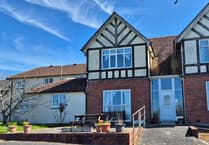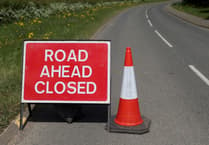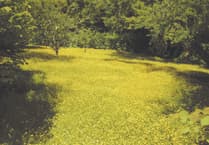More home building will not solve the housing crisis in South Hams, according to district council leader, Julian Brazil.
“A definition of madness is to do the same things again and again and to expect a different outcome. We have been building thousands of houses in this country and it’s not working; it’s not solving the housing crisis by any stretch of the imagination,” he told this newspaper.
“The government doesn’t know what to do, but at some point, if we don’t feel it is going to deliver what our community needs, then we’re going to have to challenge them. We can’t be complicit in building houses over our beautiful environment.”
The comments come after last week’s article in this paper, which highlighted the scale of the housing crisis in South Hams, showing that the district has the biggest affordability gap between property prices and annual income in the South West.
In addition, would-be buyers are struggling with the rise in the cost-of-living, soaring rental prices and a local housing market that has the highest proportion of holiday homes in the South West.
According to many housing experts, more homes need to be built to tackle the problem, citing the fact that England has some of the oldest housing stock in Europe and the lowest percentage of vacant homes per capita out of 38 countries that make up the OECD (Organisation for Economic Co-operation and Development).
Although Mr Brazil rejected wholesale homebuilding, he agreed there was a housing crisis in South Hams.
He said: “We do need more houses, absolutely no doubt about it, but if those houses aren’t going to provide the housing our local communities need, then we’ve got to say we’re not having it.”
He said the answer lay in designing developments that provide an answer to the housing needs of the community. “What people don’t want to see is large executive houses that become second homes in their beautiful environment, ruining their villages.”
He called for the nationalisation of volume house builders and to use compulsory purchase orders “at a sensible price” to buy land earmarked for development. “It’s not rocket science, we did it back in the 1950s,” he said.
Mr Brazil’s views were echoed by South Hams cllr Denise O’Callaghan, who said the traditional developer-led model had not served the area, adding that it was time “for new ideas”.
She cited SHDC’s Joint Local Plan for Plymouth, South Hams and West Devon, which she claimed will “give higher priority to affordable and social housing”.
Regarding the issue of second homes and holiday lets, she expressed concerns around existing tax loopholes, adding that she would welcome more changes so that “every such property regardless of its use is charged council tax, not business rates”.
Retiree Peter Coates, a former Sevenoaks district councillor who now lives in South Hams, nonetheless argued against the need to build additional homes, citing the decline in fishing and agriculture.
“When these (existing) houses were built there was a fishing and agriculture industry. They no longer exist – all that work has gone – so the houses either have to be occupied by second homes, or buy-to-let, or be knocked down,” he said.
However, the decline in traditional industries has not had a negative impact on population size.
According to figures from the Office for National Statistics, the population of South Hams has increased by 6.6 per cent in the last decade, from around 83,100 in 2011 to 88,600 in 2021, reflecting the overall rise in the rest of the country.





Comments
This article has no comments yet. Be the first to leave a comment.